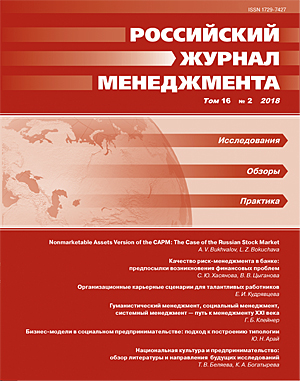Organizational Career Scenarios for Talented Workers
DOI:
https://doi.org/10.21638/spbu18.2018.203Abstract
The paper is devoted to the research of organizational career of workers included in the corporate program of talent development. It proves the proposition that the organizations realizing these programs make essential impact on the character of the career capital of workers with a high potential. On the base of the empirical data from two large Russian companies several specific scenarios of career development are revealed, namely, a career leader, career outsider, and career challenger. We identified the mechanism of realization of the opportunities and restrictions when converting career competences of workers into organizational career. Also, for the first time we discuss the risks of participation in the program of talent development which are born by workers. The factors of these risks are empirically established. The paper demonstrates the benefits of applying the propositions of the stakeholder theory in theoretical development and implementation of the talent management concept.
Keywords:
talent management, organizational career, career competencies, career capital, organizational context
Downloads
References
Translation of references in Russian into English
Downloads
Published
How to Cite
Issue
Section
License
Articles of the Russian Management Journal are open access distributed under the terms of the License Agreement with Saint Petersburg State University, which permits to the authors unrestricted distribution and self-archiving free of charge.





